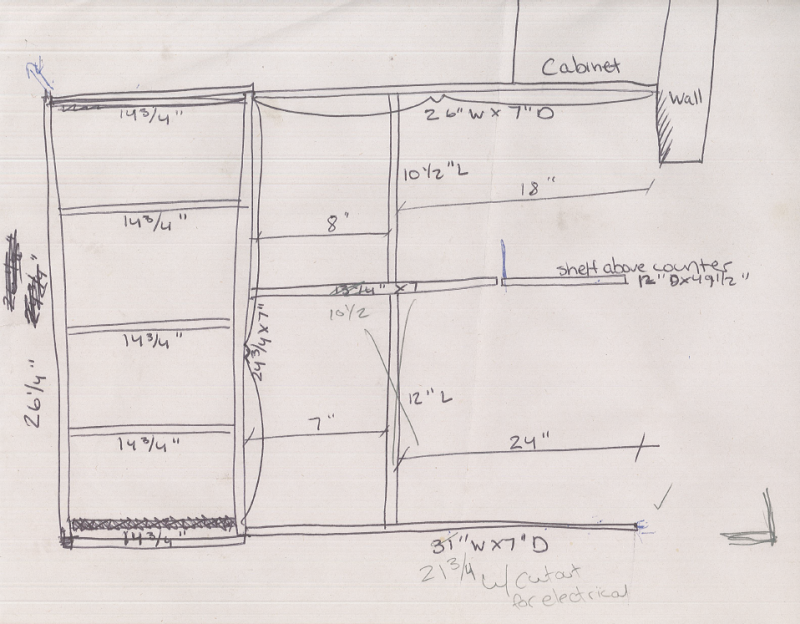
Someone I know produced the diagram above in her planning steps to produce the shelves seen below.

This person describes herself as "not a math person." What do you think? Is she a math person or not? It worries me that we have all these people walking around thinking they aren’t "math people" when in fact, they quite obviously are. We need to do a better job of explaining the difference between every day mathematical reasoning, which quite a lot of people are good at, and the formal systems of mathematics that have taken generations to develop.
Sheryl McCoy says:
Thanks for this great article. I’m bookmarking it. Two hypotheses: This person is a woman. This person has an excellent grasp of math concepts.
I’ve included some great research in links of this article: http://samccoy-n2teaching.blogspot.com/2010/10/for-some-understanding-math-will-always.html?m=1
May 3, 2012 — 2:59 am
John at TestSoup says:
Similar experience.
My stepson was 4 at the time; not in preschool because we couldn’t afford it but didn’t qualify for government aid. But he wanted to start learning, so we devised our own curriculum using books we purchased for preschoolers.
We soon found out that trying to keep a toddler interested in book learning for more than a few minutes was a tough job, so we replaced his daily learning time with something more fun: activities (like going to the zoo or the science center regularly) and projects (like painting, drawing, etc.)
One day, as we were painting a t-shirt for him to wear, he told me that he liked doing this more than learning. I told him that he was learning right then and there. Almost everything you do is learning if it requires input from you and you’re challenging yourself to accomplish a goal.
I think we need to do a better job explaining to students (and adults, apparently), that education is not something that is confined to school. That might help us cultivate life-long learners.
May 3, 2012 — 10:58 am